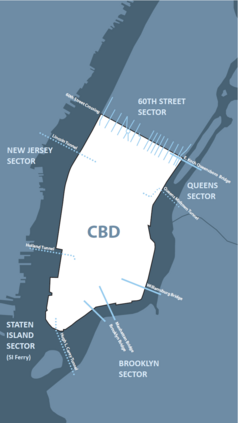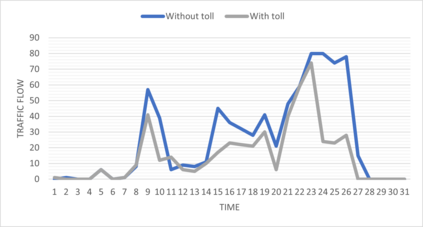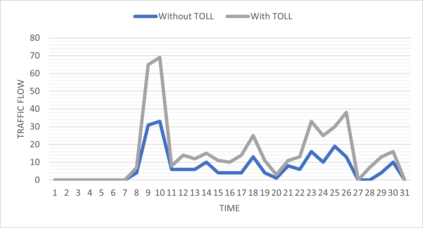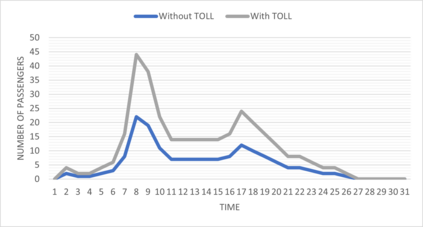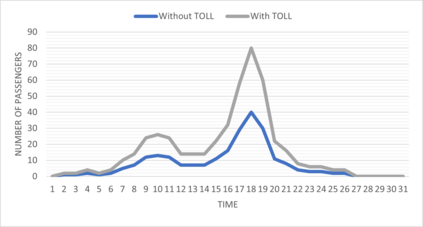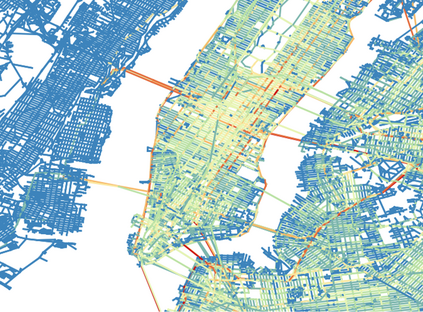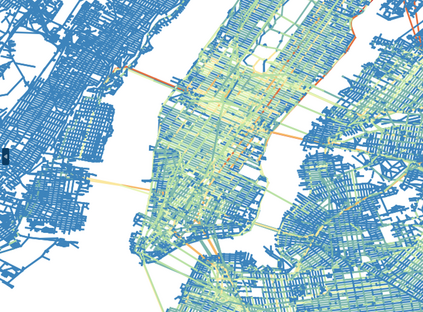Congestion tollings have been widely developed and adopted as an effective tool to mitigate urban traffic congestion and enhance transportation system sustainability. Nevertheless, these tolling schemes are often tailored on a city-by-city or even area-by-area basis, and the cost of conducting field experiments often makes the design and evaluation process challenging. In this work, we leverage MATSim, a simulation platform that provides microscopic behaviors at the agent level, to evaluate performance on tolling schemes. Specifically, we conduct a case study of the Manhattan Central Business District (CBD) in New York City (NYC) using a fine-granularity traffic network model in the large-scale agent behavior setting. The flexibility of MATSim enables the implementation of a customized tolling policy proposed yet not deployed by the NYC agency while providing detailed interpretations. The quantitative and qualitative results indicate that the tested tolling program can regulate the personal vehicle volume in the CBD area and encourage the usage of public transportation, which proves to be a practical move towards sustainable transportation systems. More importantly, our work demonstrates that agent-based simulation helps better understand the travel pattern change subject to tollings in dense and complex urban environments, and it has the potential to facilitate efficient decision-making for the devotion to sustainable traffic management.
翻译:暂无翻译


